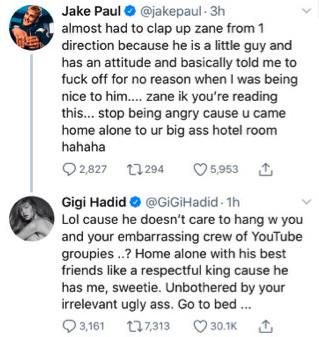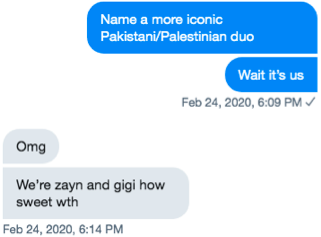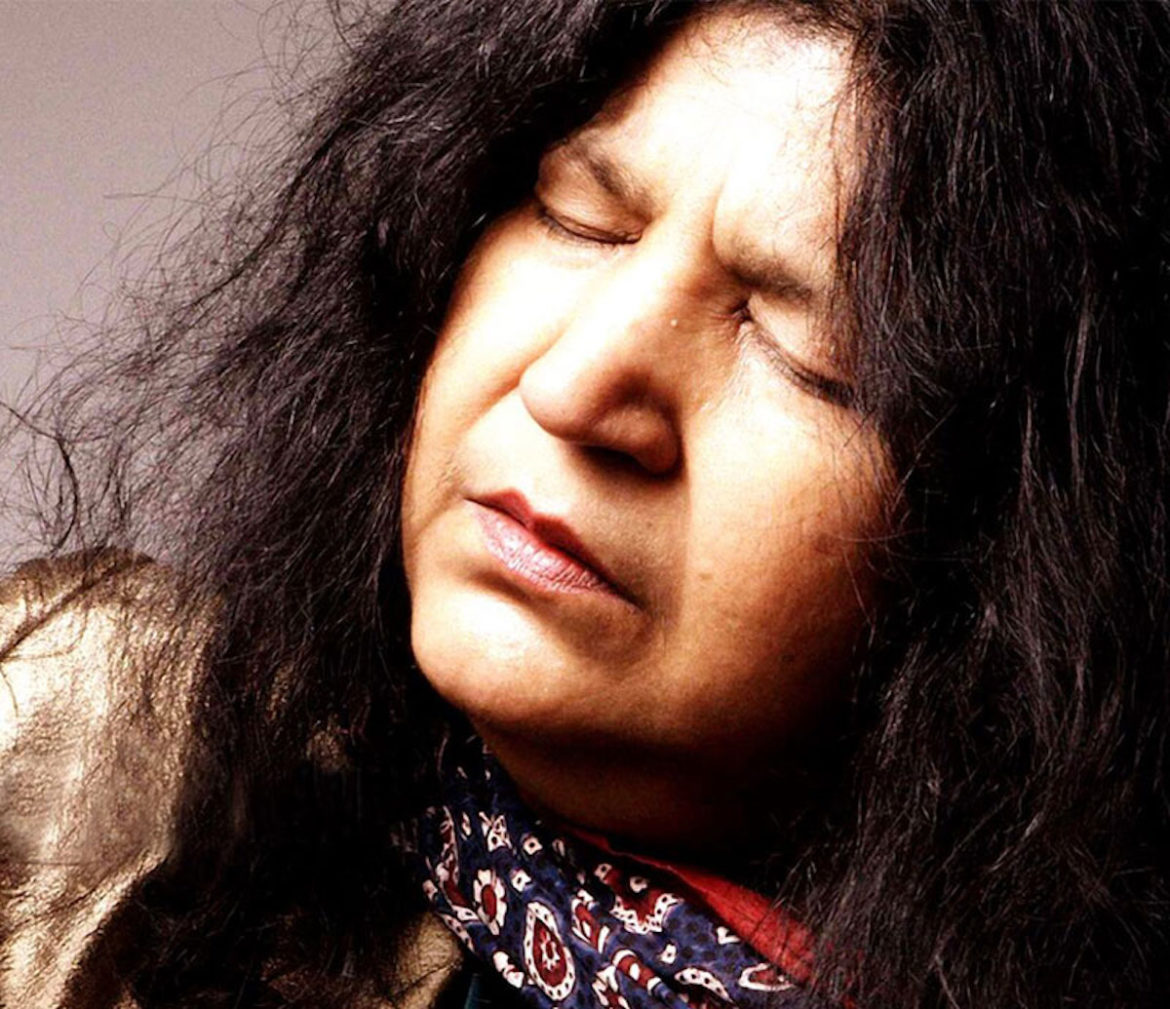‘The music is transcendent but also – and I say this with the utmost respect – it bangs‘: Adalya Nash Hussein on Abida Parveen
My mum texts me on November 27:

She asks me about it again in person.
She texts me on February 2:

On February 24, I let my mum know I’ve got us tickets.
She replies:

***
The same day I get tickets to Abida Parveen, I find out that Gigi Hadid and Zayn Malik are back together, via Hadid’s evisceration of the YouTuber Jake Paul.

For some reason, this is very important to me. I tell everybody.

***
There is an edge to Abida Parveen’s voice, a barely perceptible underlying harshness. Like static, like tchtchtchtch, like –
In violin lessons, my teacher presses down on my arm, trying to make me push my bow further into the string. He draws a diagram of horsehair, which is barbed. The barbs will hook on the string better if my bow is heavier, will make a better sound. I don’t want to push too hard, to hear that squeaky crack. I am scared of the ugliness but it is necessary, or its shadow is necessary. I think about this a lot. I have written about this before.
***
Qawwali semi-regularly breaks through to reach more mainstream (White, Western) audiences.
- In 1988, Nusrat Fatteh Ali Khan collaborated with Peter Gabriel on the soundtrack to Martin Scorsese’s The Last Temptation of Christ.
- In 2015, Radiohead guitarist Jonny Greenwood collaborated on the Qawwali album Junun. The recording process was captured in a documentary of the same name by Paul Thomas Anderson.
- In 2016, former One Direction member Zayn Malik included a qawwali track, INTERMISSION: fLoWer, on his debut solo album Mind of Mine.
This is something we both resent and revere – like, “these White people don’t really understand us,” but also “don’t you know Jeff Buckley once called Nusrat his Elvis“.
***
I get to Hamer Hall early. I am worried about being underprepared. The music I have played and studied is mostly orchestral “Western Art Music”. I don’t consider myself an expert in qawwali just because I am Pakistani, but I also don’t know any experts to pass the review along to. I don’t know if I usually believe you have to be an expert to review something.
***
In an article about Abida Parveen, the Arts Editor of The Age describes her as “one of the most famous singers you’ve probably never heard of”, which I guess goes to show that my mum and I are not his imagined readership.
***
Before the concert there is entertainment on every level of the venue, I assume to encourage us to arrive on time. I walk through a pack of Uncles bhangraing in their business shirts. There is a talk I want to go to about Tilism-e-Hoshruba by the English translator, Shahnaz Aijazuddin.
The question I am asked most by readers is: “Was JK Rowling inspired by Tilism-e-Hoshruba?“
My mum texts to let me know there is chai upstairs.
***
Most live performers achieve a reputation for excellence in one of two ways:
- choreography, theatricality, pyrotechnics, circus, cartwheels
- a virtuosity that almost erases the body
***
The tone with which White people write about Abida Parveen (& Nusrat Fatteh Ali Khan & etc etc) is kind of one note. Like, yeah, the music is transcendent but also – and I say this with the utmost respect – it bangs. It’s like because music is about God, it has to be spoken about, listened to, solemnly – like I can’t dance to it in the kitchen with my mum.
***
- There are spontaneous bursts of applause before the concert starts – excited audience members who convince themselves some sound or movement is a sign she is about to come on.
- The houselights never go down.
- Groups of audience members scream song requests in unison.
- The audience frequently starts to clap along but then it dies out as soon as she starts to sing, they don’t want anything to obstruct the sound of her voice.
- Everybody stands and rushes between seats to get closer to the front of the stage for her last song.
These sentences describe both the Abida Parveen concert at Hamer Hall three weeks ago, and the Hilary Duff concert at the National Convention Centre in 2005.
***
Abida Parveen performs on a small, carpet-draped stage sitting on top of Hamer Hall’s existing stage. Parveen sits cross-legged close to the front of the stage and the ensemble sit in a triangle around her – Karam Hussain on dholak, Abid Hussain on tabla and Manzoor Hussain on harmonium (who also refills Parveen’s glass of water between songs). Projected on the back wall is a huge photo of a mosque; the image has been tinted this particular shade of blue in this particular manner that is just extremely Muslim but I can’t really explain why.
***
Abida Parveen has been a significant presence on South Asian reality competition shows – a regular judge on the India vs Pakistan Sur Kshetra, a guest judge on Pakistan Idol, Chhote Ustaad and STAR Voice of India. The virtuosity and recognisability of her music also makes it well suited to inspirational audition videos, judges telling 16-year-olds they have what it takes.
***
Abida Parveen is compelling vocally, but she’s also compelling physically. She is not moving strenuously, she isn’t even standing. Her body wouldn’t usually be described at all; because it isn’t traditionally thin, young, manicured and so on, her body is not relevant. But the way she moves is compelling: it’s all in her head, her shoulders, her arms, her hands. She holds and releases the tension in her voice with a flick, like it’s nothing, like it’s easy, like –
***
Pepsi – so renowned for building their brand off pop music that they sponsored a multi-episode Empire arc about it – collaborated with Abida Parveen on songs to accompany their 2015, 2016 and 2017 Ramadan campaigns. Parveen has also worked with their rivals, appearing on Season 3 of the Pakistani music show Coke Studio.
***
Between songs she adjusts her legs, crossing, uncrossing and recrossing them as she thumbs through pages of her own calligraphy.
As she starts to sing, a young couple near me grasp each other in recognition. As she changes tempo, they twist their hands in imitation of hers.
Abida Parveen performed at the Hamer Hall, Arts Centre Melbourne, on February 29.

